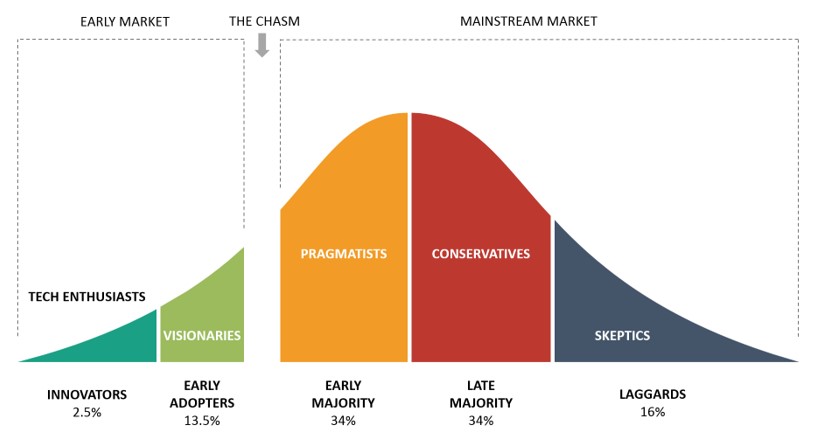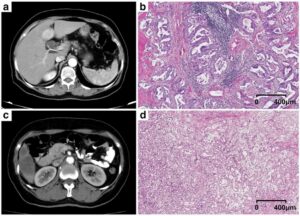A while ago we came up with the idea to investigate the intersection between change management and artificial intelligence (AI) in radiology.
We wanted to assess independent predictors for being a so-called ‘early adopter’, inspired by Roger’s Innovation Diffusion theory.
An early adopter, coming right after the innovator, is someone who wants to take a risk without getting an immediate benefit. In our domain, this translates to a radiologists/resident with an open and proactive attitude (i.e., those who are willing to invest extra time in AI in an already full clinical schedule).
The >1,000 responses generated an extensive database with which we were able to determine independent predictors for being an ‘early adopter’ as well as for having ‘fear of replacement of AI’.
The key takeaway is that higher levels of education both strongly increase the likelihood of having an open and proactive attitude towards AI in clinical radiology, whilst decreasing the likelihood of fearing replacement due to AI. Rudimentary AI-specific knowledge had the opposite effect and was found to increase fear and diminish the odds of having a positive attitude. Other strong predictors for being an ‘early adopter’ were the male gender and professional social media use. Survey research is notoriously challenging because of the subjective nature, which is why we thoroughly corrected for confounders. The results proved to be very robust.
Since AI-specific knowledge beyond rudimentary levels increases the odds of being an ‘early adopter’ up to 17-fold, education is key when wanting to drive change and bridge the chasm. I dare say this probably holds true in domains beyond AI and radiology, too.
Interestingly, we also saw that those who had only heard of AI (i.e. having no in-depth knowledge whatsoever) are likely to be open and proactive as well, contrary to those with rudimentary knowledge. Faith in humanity restored, I’d say.
Part 1 is out now (use the link below to read the full article). Part 2, on expectations, hurdles to implementation and education, will be out soon.
Key points
- Forty-eight percent of radiologists and residents have an open and proactive attitude towards artificial intelligence (AI), while 38% fear of replacement by AI.
- Intermediate and advanced AI-specific knowledge levels may enhance adoption of AI in clinical practice, while rudimentary knowledge levels appear to be inhibitive.
- AI should be incorporated in radiology training curricula to help facilitate its clinical adoption.
Authors: Merel Huisman, Erik Ranschaert, William Parker, Domenico Mastrodicasa, Martin Koci, Daniel Pinto de Santos, Francesca Coppola, Sergey Morozov, Marc Zins, Cedric Bohyn, Ural Koç, Jie Wu, Satyam Veean, Dominik Fleischmann, Tim Leiner & Martin J Willemink













